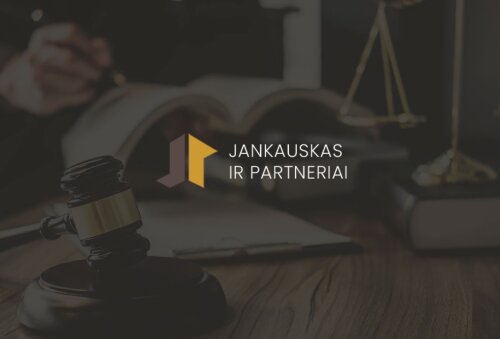Best Collaborative Law Lawyers in Republic of Lithuania
Share your needs with us, get contacted by law firms.
Free. Takes 2 min.
Free Guide to Hiring a Family Lawyer
Or refine your search by selecting a city:
List of the best lawyers in Republic of Lithuania
About Collaborative Law in Republic of Lithuania
Collaborative Law in the Republic of Lithuania is a legal process where both parties work together, with their lawyers, to resolve disputes without going to court. It is a method of alternative dispute resolution that focuses on cooperation and communication to reach a mutually acceptable agreement.
Why You May Need a Lawyer
You may need a lawyer in Collaborative Law in the Republic of Lithuania if you are involved in a legal dispute with another party and wish to resolve it amicably. A lawyer can help guide you through the Collaborative Law process, protect your rights, and ensure that your interests are represented throughout negotiations.
Local Laws Overview
In the Republic of Lithuania, Collaborative Law is governed by the Law on Collaborative Law, which sets out the procedures and requirements for resolving disputes through this method. It is important to understand the specific laws and regulations that apply to Collaborative Law in Lithuania before entering into any agreements or negotiations.
Frequently Asked Questions
1. What is the difference between Collaborative Law and mediation?
Collaborative Law involves both parties and their lawyers working together to reach an agreement, while mediation involves a neutral mediator facilitating discussions between the parties.
2. How long does the Collaborative Law process usually take?
The length of the Collaborative Law process can vary depending on the complexity of the case and the willingness of both parties to cooperate. It can typically take a few months to a year to reach a final agreement.
3. Can I still go to court if the Collaborative Law process fails?
If the Collaborative Law process fails to reach an agreement, both parties must hire new lawyers to represent them in court. Any information shared during the Collaborative Law process cannot be used in court proceedings.
4. Is Collaborative Law confidential?
Yes, Collaborative Law proceedings are confidential, and any discussions or negotiations that take place during this process cannot be used in court.
5. How much does Collaborative Law typically cost?
The cost of Collaborative Law can vary depending on the complexity of the case, the number of meetings required, and the hourly rates of the lawyers involved. It is usually less expensive than going to court, but costs can add up over time.
6. Can I use Collaborative Law for any type of legal dispute?
Collaborative Law is most commonly used for family law disputes, such as divorce and child custody cases. However, it can also be used for other civil disputes, such as contract disputes or property disagreements.
7. Do both parties need to agree to use Collaborative Law?
Yes, both parties must agree to use Collaborative Law and sign a participation agreement before beginning the process. If one party decides to go to court, Collaborative Law cannot proceed.
8. What are the benefits of using Collaborative Law?
Some of the benefits of using Collaborative Law include lower costs, faster resolution times, greater control over the outcome, and the ability to maintain confidentiality and privacy throughout the process.
9. What happens if one party is being dishonest during the Collaborative Law process?
If one party is being dishonest or withholding information during the Collaborative Law process, the other party's lawyer can raise concerns and potentially withdraw from the process. It is important for both parties to be honest and transparent to reach a fair agreement.
10. How can I find a Collaborative Law lawyer in the Republic of Lithuania?
You can find a Collaborative Law lawyer in the Republic of Lithuania by contacting the Lithuanian Bar Association or searching for legal professionals who specialize in alternative dispute resolution methods.
Additional Resources
For more information about Collaborative Law in the Republic of Lithuania, you can visit the Lithuanian Bar Association's website or contact the Ministry of Justice for guidance on legal matters.
Next Steps
If you need legal assistance in Collaborative Law in the Republic of Lithuania, it is important to research and find a qualified lawyer who specializes in this area. Schedule a consultation to discuss your case and determine the best course of action for resolving your dispute through Collaborative Law.
Lawzana helps you find the best lawyers and law firms in Republic of Lithuania through a curated and pre-screened list of qualified legal professionals. Our platform offers rankings and detailed profiles of attorneys and law firms, allowing you to compare based on practice areas, including Collaborative Law, experience, and client feedback.
Each profile includes a description of the firm's areas of practice, client reviews, team members and partners, year of establishment, spoken languages, office locations, contact information, social media presence, and any published articles or resources. Most firms on our platform speak English and are experienced in both local and international legal matters.
Get a quote from top-rated law firms in Republic of Lithuania — quickly, securely, and without unnecessary hassle.
Disclaimer:
The information provided on this page is for general informational purposes only and does not constitute legal advice. While we strive to ensure the accuracy and relevance of the content, legal information may change over time, and interpretations of the law can vary. You should always consult with a qualified legal professional for advice specific to your situation.
We disclaim all liability for actions taken or not taken based on the content of this page. If you believe any information is incorrect or outdated, please contact us, and we will review and update it where appropriate.
Browse collaborative law law firms by city in Republic of Lithuania
Refine your search by selecting a city.
















